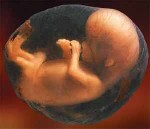's Blogs
 |
 |
Post Archive
 |
 |
Blogger Profile
My posts are presented as opinion and commentary and do not represent the views of LabSpaces Productions, LLC, my employer, or my educational institution.
 |
 |
Around the Network
Author: Brian Krueger, PhD | Comments: 9
Author: Brian Krueger, PhD | Comments: 0
Author: Brian Krueger, PhD | Comments: 2
Author: Brian Krueger, PhD | Comments: 2
Wednesday, December 31, 1969
This post has been viewed: 200410 time(s)
 |
 |
Add Comment?
 |
 |
Friends



